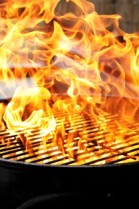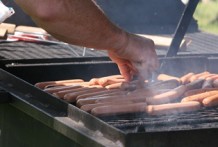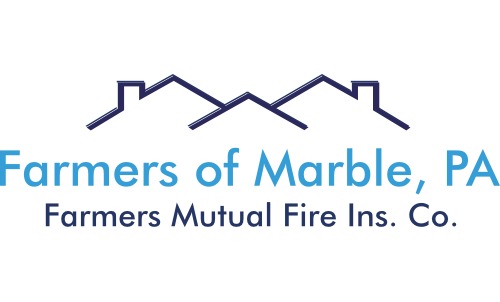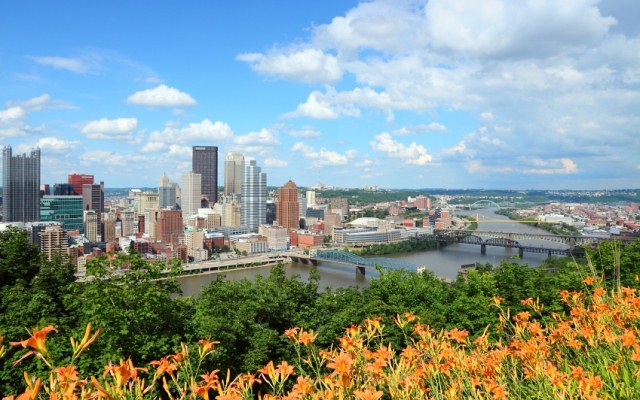
Food Safety
- Beware of cross contamination, which could cause food poisoning. Keep cooked and uncooked food separate. If you’re grilling with a marinade, split the sauce into two bowls; one to be used on the raw food and the other to be add-ed onto the cooked food.
- It’s not safe to eat food just because it looks cooked. Using an internal meat thermometer is the best way to deter-mine if your meat is safe to eat.
If it’s a hot day, be aware of how long you’re leaving your dishes out in the sun, particularly ones that will go bad if not refrigerated.
Before you heat up your grill, here’s everything you need to know about grill safety.
Grill Placement
- Never use your grill indoors, in a garage, or under anything that could catch fire.
- Place your grill at least ten feet away from your home, or any other structures or buildings.
- Make sure your grill is not located near any deck rails, siding, or low hanging tree branches that could catch on fire.
- Keep a spray bottle and fire extinguisher nearby at all times.
Charcoal Grill Safety
- Make sure you use your grill in an open space. Charcoal grills burn off dangerous carbon monoxide gas that builds up in closed areas.
- Never use any flammable or combustible liquid to start the fire. These starter fluids could cause an uncontrollable flash fire; add more charcoal or use kindling instead.
- After grilling, allow charcoals to cool completely, soak them in water, and then store or dispose them in a metal container so they don’t reignite.
Gas Grill Safety
- Before using your grill, check your hoses for cracks, blockages, or gas leaks. To check for a gas leak, open the gas supply valve fully, apply a soap and water mix onto the hose, and look for bubbles. If you see bubbles, there’s gas leaking out of your hose. Turn the gas off immediately and call a professional to fix the leak.
- Never store propane cylinders, or other spare gas containers, near the grill or indoors. These containers can be explosive in fires. Even if you store your grill indoors for the winter, remove the gas container and store it outside.
- Never start your grill with the lid closed.
Maintenance and Personal Safety
- Check your grill frequently for cleanliness. Make sure no animals or bugs have crawled inside.
- Don’t allow fat and grease to build up. A hot grill can ignite fat and grease and start a fire.
- When grilling, use long grilling tools to keep your hands as far away from the heat and flames as possible. Wear fire resistant mitts, and don’t wear long sleeves or baggy clothes that could catch on fire.
Using this checklist will help ensure you, your home, and your grill are safe. These simple steps may be able to pre-vent you from having to deal with a home fire started by your grill.
Information provided by: PA Bureau of Workers’ Compensation | Health & Safety Division | 1171 S Cameron Street, Room 324 | Harrisburg | PA | 17104










































